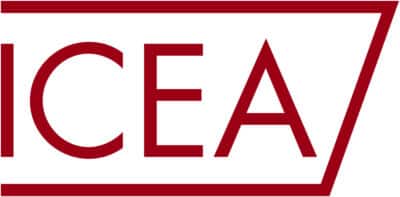
The Master’s Degree in Strategic Environmental Management, with its twenty-three years of activity, ranks at the top of the range of training courses on sustainability management in Italy and, today more than ever, is an important springboard for finding work or improving one’s position in the world of the green economy, with good employment prospects.
Born from the experience of the CESQA (Centre for Environmental Quality Studies) research group, established by Prof. Antonio Scipioni, the Master’s programme is also sponsored by the Ministry of the Environment and Energy Security.
The Master’s Degree in Strategic Environmental Management is cross-disciplinary and divided into seven modules, two of which are individual professional courses. It is aimed at graduates from all disciplines, offering the opportunity to obtain up to five certificates.
Recent graduates and those not currently in employment have the opportunity to acquire, through teaching and professional internships, skills in the field of environmental management and sustainability that are difficult to obtain through a traditional university course. For those in employment, the specialisation offered by the university course allows for professional growth, career advancement and, in many cases, a change of field of work. The weekend formula and dual teaching method also allow students to balance their studies with their working lives.
The Master’s programme trains multi-skilled professionals in sustainability management, who are able to combine the most innovative methods and techniques for analysing and measuring environmental issues with those of a managerial nature, creating economies of scale for the implementation of strategic environmental management and circular economy actions.
The Master’s Degree in Strategic Environmental Management is aimed at both recent graduates and those who are already employed and wish to obtain further qualifications, with the skills needed to develop and implement environmental management systems (EMS), with a focus on life cycle analysis (LCA) and environmental footprint. In addition, at the end of the course, students will have acquired the ability to identify and interpret national and international legislative requirements, ensuring compliance with sustainability regulations and standards, including those of the Corporate Sustainability Reporting Directive (CSRD). Professionals will be able to independently conduct audits for EMS and GHG, assessing environmental performance and promoting continuous improvement.
The training approach also embraces the principles of the circular economy, encouraging the development of innovative solutions for waste reduction and resource enhancement, providing the basis for monitoring climate-changing emissions and implementing sustainability management systems.
The highly qualified professional profile that emerges finds employment:
• in the sustainability teams of companies and organisations;
• in technical roles within public administrations;
• in the environmental consulting sectors for public and private entities.
The contents of the Master’s Degree in Strategic Environmental Management are distributed across seven modules. The training programme also includes three individual courses with a final exam and certificate (exams and certificates are not mandatory; students may choose not to take the exam for the individual course):
Module 1 – CIRCULARITY AND SUSTAINABILITY
The aim is to provide students from different academic backgrounds with the common theoretical, conceptual and lexical foundations necessary to understand the circular economy as an alternative to the traditional linear economic model. Topics such as sustainable community management, non-financial reporting, sustainability reporting, green finance and green bonds are also covered.
Module 2 – ENVIRONMENTAL LEGISLATION, TECHNIQUES AND TECHNOLOGIES
Analysis of European and national environmental legislation, with particular attention to environmental matrices.
Module 3 – ENVIRONMENTAL MANAGEMENT SYSTEMS
The standardisation, accreditation and certification processes are analysed, as well as the requirements of UNI EN ISO 14001 and the European EMAS Regulation for the implementation of an environmental management system (context analysis, stakeholder needs and expectations, risk-based approach, life cycle perspective, compliance obligations, etc.).
Module 4 – ENVIRONMENTAL AUDIT – ENVIRONMENTAL LEAD AUDITOR COURSE (40 HOURS)
The course provides specialist training on planning and conducting audits for an organisation’s environmental management systems and on presenting the results in accordance with the UNI EN ISO 19011 standard.
Module 5 – LIFE CYCLE MANAGEMENT
The focus is on the life cycle approach to assessing the environmental impacts of both products and organisations. The main topics are: the EU’s integrated product policy, the Life Cycle Assessment methodology, Green Public Procurement, environmental labels and the EcoLabel Regulation.
Module 6 – FOOTPRINTING
In line with the European Product Environmental Footprint policy, the course provides knowledge on the carbon footprint and water footprint applied to products, but also to organisations, and future applications of footprinting.
Module 7 – ORGANISATIONAL CARBON FOOTPRINT
VALID FOR THE PURPOSES OF THE ISO 14064-1 GHG LEAD AUDITOR QUALIFICATION
The module provides basic information on how to calculate GHG inventories in accordance with ISO 14064-1 and how to verify GHG sector standards and environmental declarations.
The teaching staff consists of professors from the University of Padua, other Italian and European universities, experts from all over Italy working in organisations that have long been active in the environmental field, and lecturers from bodies and institutions such as the Ministry of the Environment and Energy Security, ACCREDIA, UNI, ISPRA, ARPA Veneto, ASVIS, and certification bodies.
These institutions sponsor the Master’s programme and represent a historic network of excellence. In addition to these institutions, there is a well-established network of businesses and companies that offer professional collaborations to students.
The Master’s programme awards up to five certificates, subject to specific examination tests:
1. Postgraduate Master’s degree, awarded by the University of Padua.
2. The Master’s programme is accredited to meet the training requirements (40 hours) of UNI/PdR 109 relating to the role of sustainability manager.
3. Certificate of attendance and exam pass: Auditor/Lead Auditor Environmental Management Systems (UNI EN ISO 14001).
4. Certificate of attendance and exam pass: Auditor/Lead Auditor GHG (UNI EN ISO 14064-1).
5. EMAS environmental consultant and auditor for the public administration sector (PA) issued by the EMAS National School of Padua, recognised by the Ecoaudit-Ecolabel Committee (with inclusion in the appropriate registers kept by ISPRA).
The EMAS school trains professionals (internal auditors and consultants) to assist and support public administrations in the EMAS registration process.
An open badge will also be issued, a digital certification of disciplinary knowledge, personal skills (soft skills) and technical skills acquired.
The Master’s programme also awards 30 CFP (professional training credits) for engineers, in collaboration with the Order of Engineers of Padua.
The Master’s Degree in Strategic Environmental Management is a long-standing programme that is updated with each new edition. Every year, the organising body CESQA, the Centre for Quality and Environmental Studies at the University of Padua, conducts an analysis of the job market and assesses which professional figures are most in demand at the time and what training they need. Active at the highest international levels in scientific research applied to the fields of environmental sustainability, Life Cycle Assessment, and Carbon & Water Footprint, it organises and manages numerous sustainable management projects and is called upon to represent Italy at discussion tables on regulatory updates and new standards.
The general ranking of merit will be published on the Italian page of this Master according to the timing provided in the Call.
Information
FAQ
The Master’s Degree in Strategic Environmental Management lasts one year and the teaching programme is structured as follows:
• 296 hours of classroom teaching (in person) / distance learning (Zoom)
• 40 hours of online teaching (exercises on Moodle to be completed independently by students)
• 450 hours of internship and/or project work.
Teaching for the 2025/26 academic year will be delivered in a dual mode to facilitate, on the one hand, off-site students who will be able to follow the teaching activities remotely and, on the other hand, students who, having the opportunity to attend, wish to take advantage of the opportunities that arise from the exchange of knowledge and ideas that only the classroom can offer.
The Master’s programme offers the opportunity to undertake a 450-hour internship in a company. The Master’s programme will assist students in finding companies in which to undertake their internship, thanks to the extensive network built up over its twenty-two editions.
It is possible to combine the Master’s programme with work, as classes are held on Fridays for the entire day and on Saturday mornings. Working students can carry out a project work in lieu of the internship period. The Master’s programme also allows students to be absent for up to 30% of the teaching hours.
The Master students will take two intermediate written exams in February and July to test their knowledge. The final exam (oral) will be held in September, and students will present their final internship reports or project works. Taking and passing these exams is mandatory to obtain the Master Diploma. The three single post-graduate courses entail specific exams held by the organizing institutions, mandatory to obtain the related certificates of attendance.

